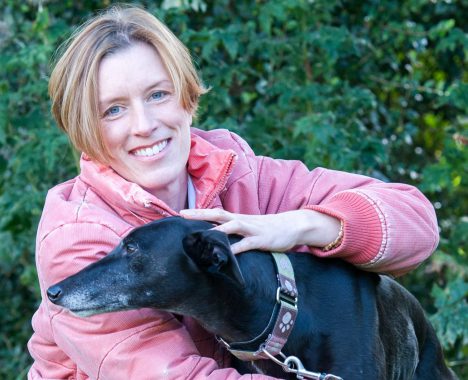They say everyone’s got a book in them, but I thought that was rubbish because I didn’t feel I did. So it actually came as a bit of a shock the day I held a solid copy of the book I had written – Living The Slim Life – in my hands. This all came about from a feeling that my health was starting to slip in my late 30s.
Within two to three months I felt better than I could ever remember feeling
I started with niggling pains in my knees in my mid 30s, and within a few years they sounded like crisp packets and were getting really painful. This did not fit at all with my relatively active lifestyle and was becoming a worry. I’d watched my Dad suffer years of pain with his knees and hips before eventually having them all replaced. I did not want that.
My knowledge as a GP was not going to help me very much with this, but I had a feeling that although I was living a pretty healthy life I must be doing something wrong to be having this kind of trouble so young. I decided to see if there was an answer ‘out there’ before things got too bad. I started reading about natural health, and it dawned on me that as a doctor I know lots about disease and medicine, but little about how to actually be healthy, or restore health if it starts to decline. It was a sobering moment when that occurred to me!
With what I was learning I honestly felt like I have having another education, and as things made sense to me I made gradual changes to my diet and lifestyle.
One of the significant changes I made was to significantly increase my fat intake. Like most people I’d swallowed the line that a low fat diet is healthy and promotes weight loss. But I started eating a lot more healthy fat, which felt like I was going against the grain at first. Another big change I made was to reduce the amount of wheat I ate. I’ve noticed since that if there’s one thing that will make my knees start niggling again it’s eating wheat on a regular basis. I made plenty of other smaller changes too, and combined they had a very pleasing result.
Within two to three months I felt better than I could ever remember feeling – I felt happier, I had loads more energy, I was sleeping really well, and my knees stopped hurting. Now in my mid 40s – my knees are still great, in fact at the time of writing this I’m looking forward to skiing very soon.
The other marvellous thing was that I lost weight. I wasn’t what you’d call overweight before, but you know yourself when you’re carrying a bit more than you’d like to, and I was definitely doing that and struggling to shift it. It just seemed to melt away, and that’s stayed away too.
The book I’ve written includes how I achieved the mind-set to change, as well as the lifestyle changes I made. I used to be guilty of advising overweight patients to ‘eat less and do more’, but I now understand exactly why that will not work for most people. This is a good deal to do with mindset, but also the advice regarding sticking to a low fat diet is not conducive to long-term weight loss. I think there is going to be a move away from this now, and it can’t come soon enough in my opinion, particularly for our diabetic patients.












